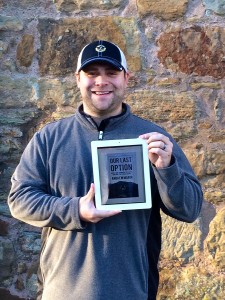You can look at the Table of Contents and read an excerpt from the Preface here. This is an excerpt from the Introduction our my new ebook Our Last Option: How a New Approach to Civility can Save the Public Square (US, Canada, UK). In the Introduction I’m setting up the book by exploring the reasons behind “culture wars”:
“The founding father of the contemporary understanding of social change was German researcher Max Weber. Weber’s historically recognized model, Theory for Social Stratification, was grounded in the belief that Western society had become a culture dominated by goal-oriented rationalities (Gerth & Mills, 1998). These rationales focus on a singular outcome that gives the controlling cultural power to only one faction of society. Weber’s research concluded that societies using a system of goal-oriented engagement will always be culturally, politically, and religiously unstable (ibid).
These instabilities stem from the dominant power structure lasting only a finite amount of time before an opposing goal-oriented faction rises up and overthrows it. This new power group then uses the same system of singular, goal-oriented engagement against their culture and government—but with their outcome in mind. Weber believed that those fighting for singular outcomes leave no room for a collective journey of variation, adaptation, or cross-worldview compromise (Cosner, 1977). Hence, this new power group will also only last a finite amount of time. The key to stopping this circular structure is not who is in power but what system of engagement those in power choose to use.
Weber’s research also provided an answer to the instability of goal-oriented engagement: holistic social change that is hinged upon a value-oriented system of action. He understood “value” as an idea and means of engagement that creates communal affinity across worldviews standing in opposition to the current polarizing system that is void of the other as a legitimate part of the process (ibid). In contemporary terms, such a value-oriented system works to undo the “acceptable” dualistic filter forcing culture into a state of good or bad, right or wrong, better or worse, conversion or potential to be converted (Levi-Strauss, 1978).
The disintegration of the will to engage one’s opposing worldview stems from an incorrect contemporary understanding of what it means to have a “strongly held conviction.” Weber promoted the necessity for agents of social change to have strongly held convictions (Henderson & Parsons, 1964). I also believe that strongly held cultural, political, and religious convictions are paramount to living a holistic and sustainable value-oriented rationality.
Yet when “strongly held conviction” is defined with the false expectation that all others in a given society must ultimately agree, one has moved from values to goals. This decided shift renders the conviction to nothing more than a desire for power, rather than its original intent as an idea for sustainable change.
It is our job then to take society’s tremendous activistic passions and hone them to do holistic good for society together. The goal is to reshape what is deemed as the normalized structure of contemporary activism, which in most cases has a clear focus on singular outcomes. Activism is not inherently bad. It only turns destructive when it shifts into a space where the only suitable result is that all populations in a given society culturally, politically, and religiously align.”
Find out here how to get a copy of Our Last Option for free!
Much love.











